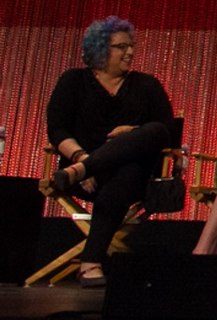A Quote by Diana Gabaldon
From the late '70s to the early '90s, I wrote anything anybody would pay me for. This ranged from articles on how to clean a longhorn cow's skull for living-room decoration to manuals on elementary math instruction on the Apple II... to a slew of software reviews and application articles done for the computer press.
Related Quotes
There hadn't been one done since the late 70s. I was living in Brooklyn, had no connection to Roger Corman, to no one in this movie. I didn't go to film school. I'm like the person who should have never made this film. But I just decided to put one foot in front of the other. I was writing film articles for magazines at the time. I convinced an editor from one of the magazines that I was working for to give me a shot to do a piece on Roger. This was an excuse to go meet him.
I often get attacked in Saudi Arabia, but the critics don't ridicule my ideas. There were about 30 or 40 articles attacking me in the Saudi press. Not a single one debated something I wrote. They just ridiculed me as a person. They see me as a traitor who is writing in the foreign press. But discuss what I am writing? They will not.
My mom used to cut out articles from the 'Atlanta Journal Constitution' when I was in high school. She would either give them to me to read or she would post them on the fridge. These articles would usually be stories of someone inventing something, breaking records, or achieving some kind of success.
I went through a period of first successes. Then there was the inevitable change: the bad newspaper articles. Some people don't care about that, but I do. I'm hurt. I feel it. I don't think I've done anything dreadful. Sometimes you do things for reasons the press doesn't know. But I'm happy to go on as I have.
We did tons of research. We went to visit a prison. We had speakers. We have read tons of supplementary material, books and articles. We are constantly emailing articles around the writers' room. We have dipped ourselves in prison culture and lore and media, and the experience and the people. We really want to be as informed as possible.


































